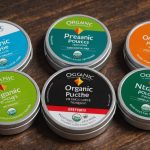Understanding Arthritis and Its Impact on Seniors
Arthritis, a prevalent condition among seniors, manifests through various symptoms such as joint pain, swelling, and stiffness. These symptoms can significantly impact seniors’ daily routines and mobility, making it essential to manage pain effectively. Arthritis can disrupt simple tasks, leading to decreased quality of life. Seniors often find activities like walking or climbing stairs difficult, highlighting the need for effective pain management strategies.
Pain management is crucial, and exploring natural remedies offers promising solutions. Gentle exercises, such as walking or swimming, can maintain mobility and reduce pain. Incorporating arthritis-friendly practices into daily routines helps seniors regain a level of independence.
This might interest you : Harnessing Music Therapy: Boosting Cognitive Health in Aging Seniors
Natural remedies also play a valuable role. Techniques such as heat application or cold packs can alleviate symptoms by reducing swelling and improving circulation. Supporting seniors through community initiatives and involving them in social groups can further enhance overall well-being, providing both physical and emotional support.
Arthritis management is not one-size-fits-all; individual approaches tailored to the specific needs of seniors can lead to more effective outcomes. By addressing arthritis symptoms with compassion and practical strategies, seniors can experience a more active and fulfilling lifestyle.
Also to read : Key Considerations for Choosing Adaptive Clothing for Seniors: A Comprehensive Guide
Dietary Modifications for Natural Pain Relief
Exploring dietary modifications can be a practical approach to managing arthritis naturally. An anti-inflammatory diet focuses on foods that help reduce inflammation and ease pain. Among the recommended foods are anti-inflammatory fruits and vegetables, rich in antioxidants. Integrating these into meals can help alleviate arthritis symptoms.
Foods to Include
Incorporating foods rich in omega-3 fatty acids, like salmon or chia seeds, provides additional anti-inflammatory benefits. Spices such as turmeric or ginger are known for their potential to reduce inflammation and can be added to various dishes for flavour and health benefits.
Foods to Avoid
Counteracting inflammation involves limiting processed foods and sugars, which may exacerbate symptoms. Reducing excessive salt and saturated fats in the diet is crucial, along with watching for potential allergens that might trigger inflammation.
Meal Planning Tips
Creating balanced meals with arthritis-friendly foods can be highly beneficial. Ensuring adequate hydration supports overall health, while considering supplements like vitamins can enhance nutritional intake. These modifications, tailored to individual needs, empower seniors with effective strategies to manage arthritis pain naturally.
Physical Activities to Ease Arthritis Pain
For seniors grappling with arthritis, incorporating low-impact exercises into their routines can significantly alleviate pain and improve mobility. These activities are designed to enhance joint flexibility and promote overall senior fitness without straining vulnerable areas.
Recommended Exercises
Water aerobics and swimming are exceptional choices, offering buoyant support that reduces joint stress. These activities not only strengthen muscles but also improve cardiovascular health, making them ideal for overall wellness. Gentle yoga and tai chi focus on joint flexibility and balance, providing both physical and mental relaxation. Walking, a simple yet effective exercise, encourages bone health and enhances mood.
Stretching and Mobility
Maintaining joint flexibility is crucial for arthritis management. Seniors should adopt daily stretching routines to ease stiffness and expand their range of motion. Resources like guided exercise programs, often available through community centres or online platforms, ensure consistency and correct technique.
Creating a Consistent Routine
Consistency in physical activity is vital. Integrating exercise into daily life can be achieved by setting realistic goals and balancing activity with rest. Engaging in community fitness groups or support circles can provide additional motivation and encouragement, fostering both physical health and social connections.
Alternative Therapies and Their Benefits
Alternative therapies offer promising options for holistic pain relief amidst conventional arthritis treatments. For seniors, these complementary health approaches provide additional avenues to manage discomfort and improve quality of life.
Acupuncture and Acupressure
Acupuncture involves inserting thin needles into specific body points, aiming to stimulate nerves and release endorphins, thereby reducing pain. Acupressure, a needle-free alternative, applies pressure to similar points, offering a less invasive option. Both techniques are considered safe for most seniors, though consulting healthcare providers beforehand is advised. Testimonials from users often highlight significant pain reduction and enhanced mobility, but individual results may vary.
Physical Therapy
Physical therapists play a crucial role in managing arthritis, designing personalized exercise programs targeting joint flexibility and muscle strength. Techniques like manual therapy and tailored exercises help relieve joint pressure, enhancing daily functionality. When selecting a therapist, verify their experience with arthritis patients, especially seniors, to ensure appropriate and effective care.
Massage Therapy
Massage can ease arthritis symptoms by reducing muscle tension and improving circulation. Types like Swedish and deep tissue are particularly beneficial. Seniors should seek therapists skilled in arthritic conditions to avoid complications. It’s important to discuss any health issues with therapists for a tailored approach.
Herbal Supplements for Arthritis Management
Herbal remedies offer promising avenues for arthritis management, especially for seniors seeking natural pain relief. Incorporating certain herbs into daily routines can supplement existing pain management strategies.
Commonly Used Herbs
A few herbal supplements stand out for their purported benefits. Turmeric and curcumin are renowned for their anti-inflammatory properties, with research suggesting that regular intake can help ease arthritis symptoms. Similarly, ginger, another powerhouse, is widely respected for its potential to reduce inflammation. Adding ginger to meals or enjoying it as tea can be an enjoyable part of daily routines. Boswellia, also known as Indian frankincense, has shown potential in some studies for its effectiveness in reducing pain and improving joint function.
Safety and Efficacy
When exploring herbal supplements, it’s crucial to evaluate their quality. Some supplements may interact with medications, so consulting healthcare providers is a necessary step before making changes. Look for products with verification seals and transparent ingredient lists to ensure safety.
Success Stories
Seniors often share anecdotes of improvements after adopting herbal remedies. Although individual outcomes vary, many find relief and enhanced quality of life. Documenting personal experiences can help in assessing the benefits over time.
Creating a Supportive Environment
Enhancing the environment plays a pivotal role in managing arthritis for seniors. Ensuring safety at home and fostering a socially supportive atmosphere aids in coping with everyday challenges.
Adaptive Tools and Devices
Utilize adaptive tools to ease daily activities for seniors. Lever-style handles, jar openers, and mobility aids like canes or walkers can prevent strain on painful joints. Emphasize the importance of ergonomic considerations in selecting these items to maximize comfort. Updating home layouts, such as installing handrails or non-slip mats, enhances safety and accessibility.
Emotional and Social Support
Cultivating emotional and social support is beneficial for senior well-being. Community engagement activities improve mental health, offering chances to form connections. Valuable resources for connecting include senior centers, clubs, and online forums. For personalized attention, explore in-home support options, which provide tailored assistance and companionship.
Building a Routine for Pain Management
Incorporate pain management techniques into daily activities. Structuring these activities consistently helps manage arthritis effectively. Consistency in regimen helps stabilize routines, integrate exercise or therapy, and maintain physical health. Encouraging family involvement in care strategies can enhance emotional support, making management more effective and enjoyable.



